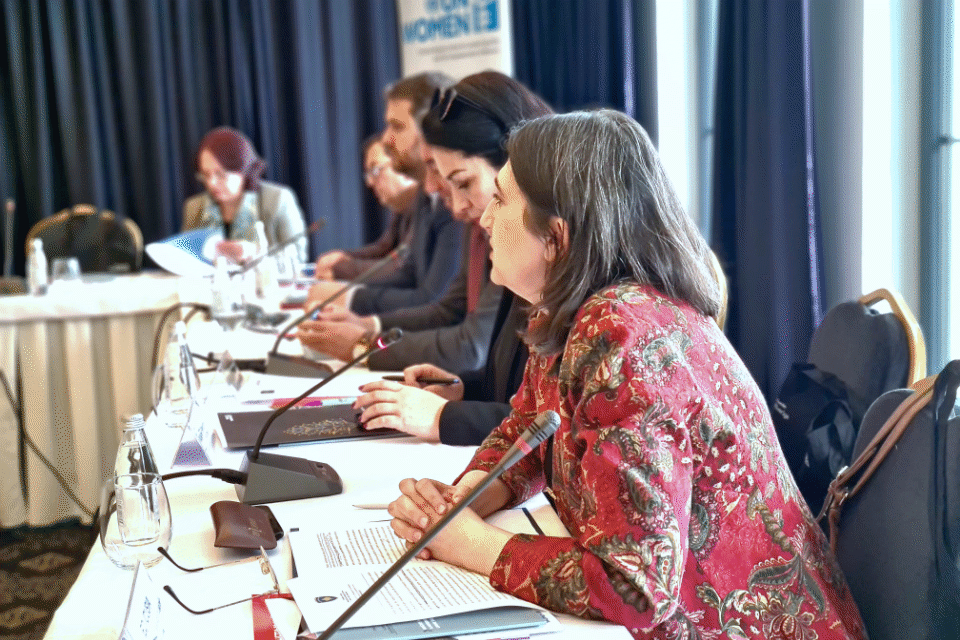Local officials in Kosovo share best practices and discuss how to develop more gender-responsive budgets and policies
Date:
Making government budgets fairer for women, men, girls and boys, known as gender-responsive budgeting, requires different interventions. To help achieve this, UN Women in Kosovo[1] , under the leadership of deputy mayors, supported over 30 local budget directors as well as financial and gender equality officers from 12 municipalities to gather for a two-day workshop in March.

Before the workshop, a panel discussion underlined how important good coordination and cooperation among key stakeholders – from the central and the local level – is when it comes to assisting public financial organizations to plan budgets that are gender-responsive.
“There is still a long way to go. UN Women is here to support you with technical assistance. It is up to all of us to take gender equality a step further day-by-day by taking various actions, and one of them, implementing gender-responsive budgeting, is one of the main instruments for addressing inequalities,” stated Vlora Tuzi Nushi, the Head of UN Women in Kosovo.
Enis Spahiu, Permanent Secretary at the Ministry of Finances, Labour and Transfers, highlighted that Kosovo has already paved the legal infrastructure needed to implement gender-responsive budgeting.
“We, as institutions, have provided clear instructions on how financial organizations can budget for the benefit of both genders – women and men. In 2019, an administrative guideline was issued that obliges public institutions to ensure evaluation mechanisms for capital projects, and one of the components within the economic and financial evaluation criteria is gender-responsive budgeting as well.”
Meanwhile, Edi Gusia, the Chief Executive of the Agency of Gender Equality (AGE), said that “gender-responsive budgeting is nothing more than offering better services for all citizens, be them men or women.”
Gusia also stated that the AGE holds regular consultative meetings with gender equality officials and stressed the importance of the workshop as she considered it as the best way to identify areas where meaningful change can happen.
Speaking during the panel discussion, Sazan Ibrahimi, the chair of the Association of Kosovo Municipalities (AKM), highlighted the significance of cooperation among local assemblies and gender equality officials. He stated that the AKM aims to establish a collegium of gender equality officials, which would share recommendations and good practices.
After the panel discussion, local gender-responsive budgeting experts discussed Kosovo’s legal framework, and what steps must be taken to ensure qualitative gender analyses are undertaken for better planning, ensuring that the needs of women and men are equally met.
The workshop concluded with a fruitful discussion among official representatives who shared their experiences and highlighted the main challenges they face in implementing gender-responsive budgeting as a legal requirement. This session also established a basis for further collaboration among those who participated.
[1] All references to Kosovo should be understood to be in the context of United Nations Security Council resolution 1244 (1999).